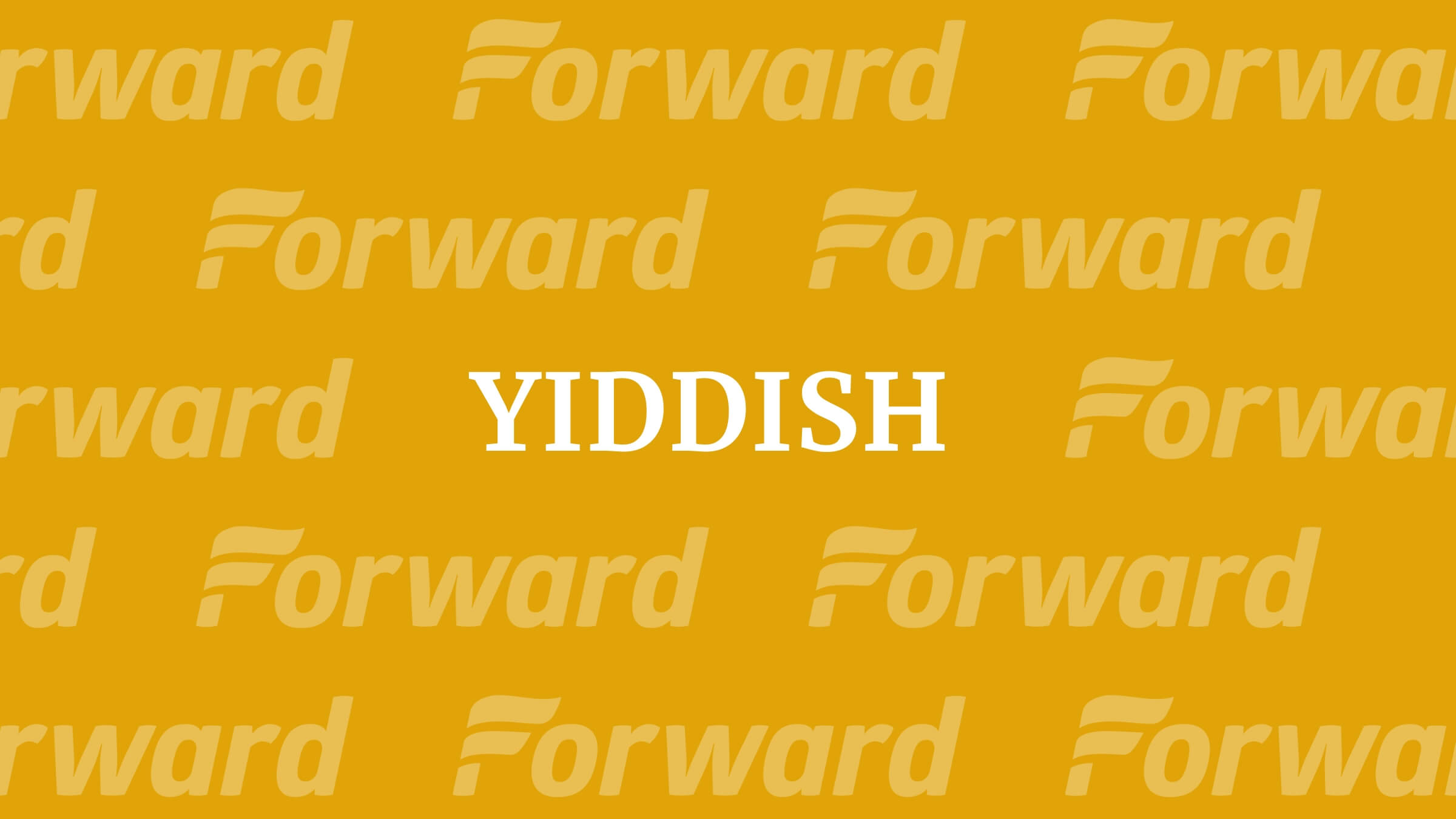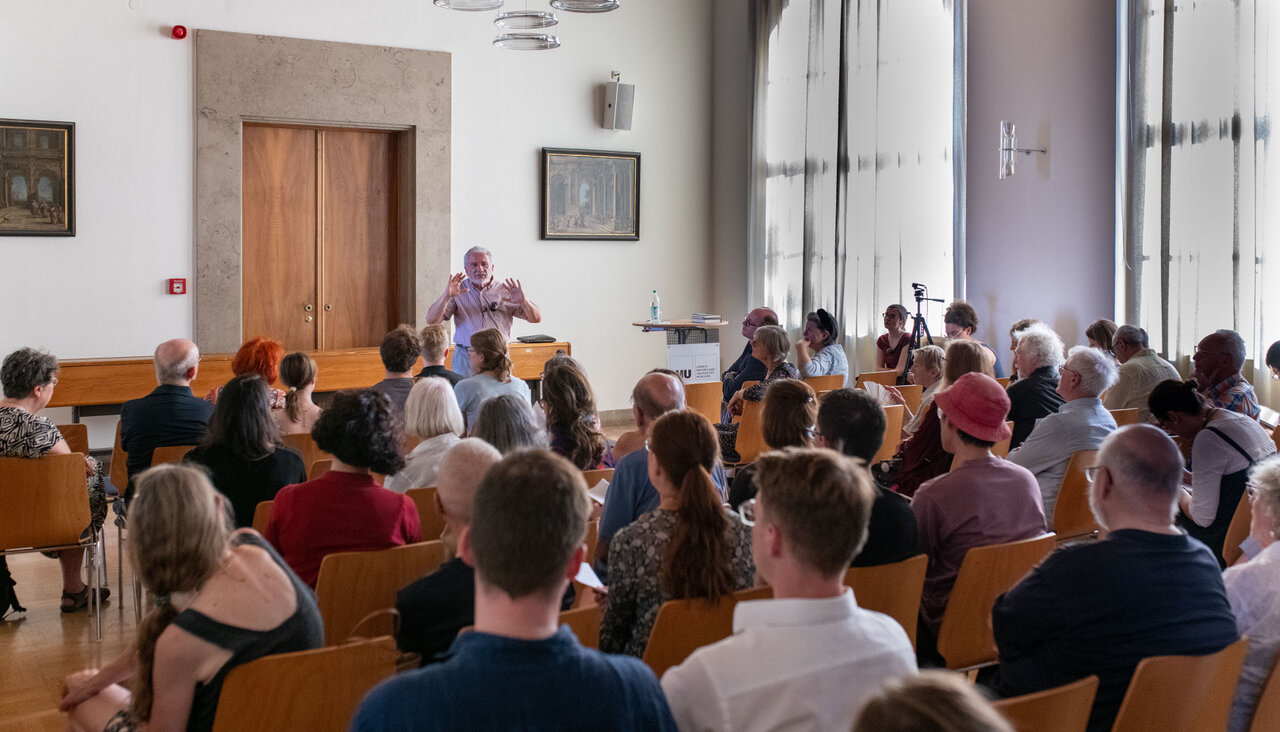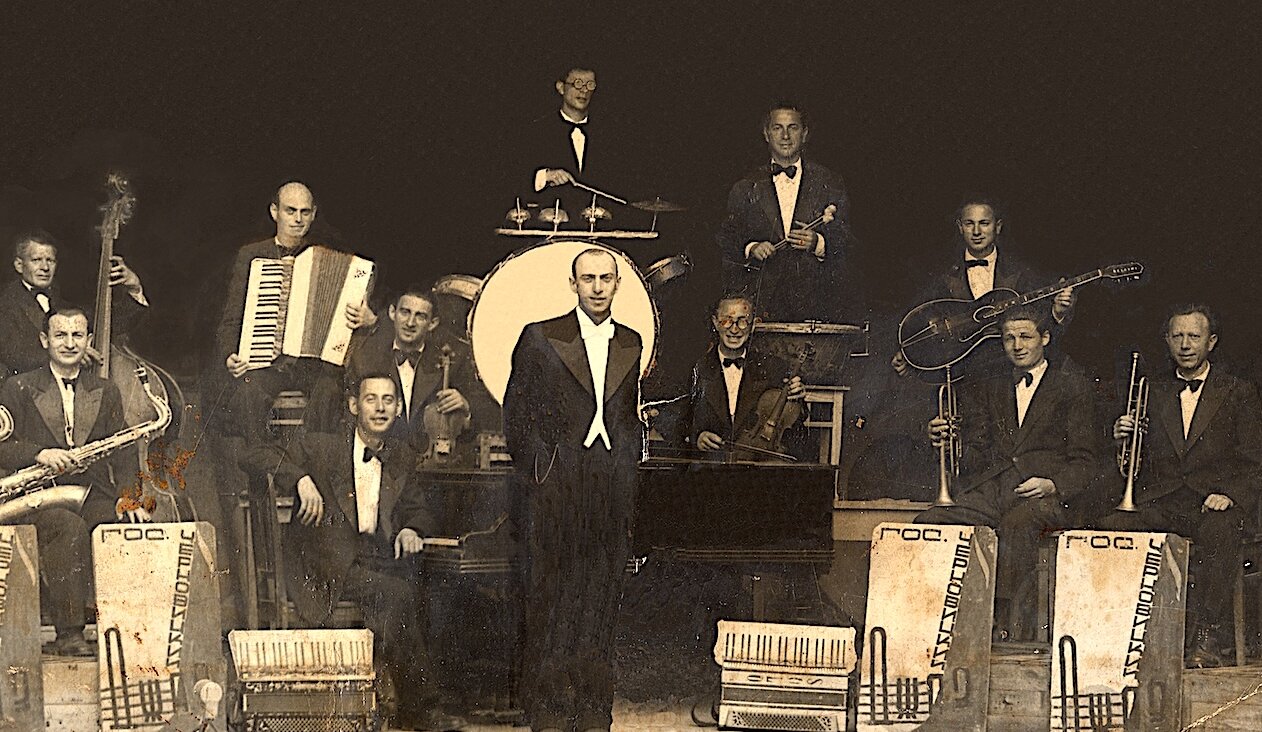ווידעאָ: קינדערלעך פּיניע און דינה זינגען דאָס פֿאָלקסליד „בולבעס“WATCH: Young children Pinya and Dinah perform Yiddish folksong, “Bulbes’’
די יונגע זינגערס קומען פֿון רוסיש־רעדנדיקע משפּחות וואָס האָבן שטאַרק ליב ייִדיש.

Graphic by Angelie Zaslavsky
דער קאָנצערט „לידער פֿאַר דער גאַנצער משפּחה“, וואָס דער אַרבעטער־רינג האָט אָרגאַניזירט לזכר דעם לאַנגיאָריקן לערער און קעמפּ־דירעקטאָר מיכל באַראַן, איז געווען אַ גרויסער דערפֿאָלג, סײַ פֿון אַ קינסטלערישן, סײַ פֿון אַ געזעלשאַפֿטלעכן קוקווינקל.
זינגער פֿון עטלעכע לענדער האָבן אויפֿגעפֿירט לידער פֿאַרבונדן מיטן אַרבעטער־רינג און דעם בונד, ווי אויך לידער פֿון די ייִדישע זומער־לאַגערן און וועלטלעכע ייִדישע שולן. אַזוי ווי דער קאָנצערט וואָס דער אַרבעטער־רינג האָט דורכגעפֿירט אין מײַ, איז כּמעט די גאַנצע פּראָגראַם, אַרײַנגערעכנט די הקדמות צו די לידער, געווען אויף ייִדיש, מיט שוין צוגעגרייטע ענגלישע איבערזעצונגען אויפֿן עקראַן, כּדי אַלע זאָלן פֿאַרשטיין. דעם גאַנצן קאָנצערט קען מען זען דאָ.
כאָטש עס זענען אויפֿגעטראָטן אַ טוץ באַקאַנטע זינגער, איז דער אויפֿטריט וואָס וואָלט מיכל באַראַנען מסתּמא צום מערסטנס געפֿעלן געוואָרן דווקא געווען פֿון צוויי ווייניק־באַקאַנטע זינגער: דינה סלעפּאָווטיש און פּיניע מינקין, וואָס האָבן געזונגען אַ חנעוודיקן טעאַטראַלישן נוסח פֿונעם פֿאָלקסליד „בולבעס“, באַגלייט פֿון דינהס טאַטן, דעם מוזיקער זיסל סלעפּאָוויטש, אויף דער פּיאַנע.
סײַ פּיניע, סײַ דינה וואַקסן אויף אין פֿילשפּראַכיקע משפּחות, מיט עלטערן וואָס זענען דערצויגן געוואָרן אינעם געוועזענעם ראַטן־פֿאַרבאַנד און האָבן ליב ייִדיש. זיסל סלעפּאָוויטש איז אַ באַקאַנטער קאָמפּאָזיטאָר און עטנאָמוזיקאָלאָג וואָס איז אויפֿגעוואַקסן אין מינסק און פֿאַרנעמט זיך מיט דער מוזיק פֿונעם אַמאָליקן ייִדישן רײַסן. אַלכּסנדר מינקין איז אויפֿגעוואַקסן אין מאָסקווע און איז אַן עקספּערט אין דער בראַזיליאַנער קולטור; ער פֿאָרשט די פֿאַרבינדונגען צווישן ייִדן און דער בראַזיליאַנער פֿאָלק־רעליגיע אומבאַנדאַ. ער האָט אויך געשריבן אַן אַרטיקל פֿאַרן פֿאָרווערטס וווּ ער דערקלערט ווי סײַ זײַן זיידע פּיניע, סײַ זײַן זון פּיניע, זענען געוואָרן אָנהענגער פֿונעם פֿאָרווערטס.





















